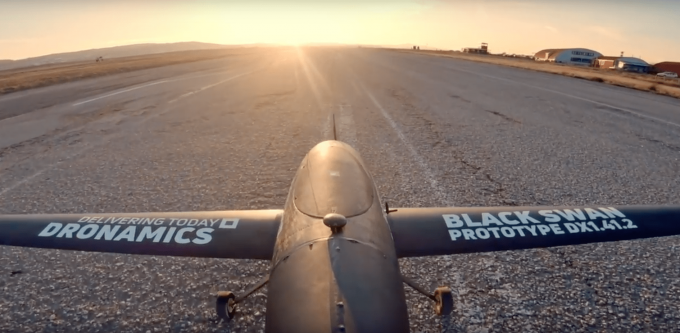$10bn Vadhavan – a game of political musical chairs
The will of the people…
TFII: SOLID AS USUALMAERSK: WEAKENINGF: FALLING OFF A CLIFFAAPL: 'BOTTLENECK IN MAINLAND CHINA'AAPL: CHINA TRENDSDHL: GROWTH CAPEXR: ANOTHER SOLID DELIVERYMFT: HERE COMES THE FALLDSV: LOOK AT SCHENKER PERFORMANCEUPS: A WAVE OF DOWNGRADES DSV: BARGAIN BINKNX: EARNINGS OUTODFL: RISING AND FALLING AND THEN RISING
TFII: SOLID AS USUALMAERSK: WEAKENINGF: FALLING OFF A CLIFFAAPL: 'BOTTLENECK IN MAINLAND CHINA'AAPL: CHINA TRENDSDHL: GROWTH CAPEXR: ANOTHER SOLID DELIVERYMFT: HERE COMES THE FALLDSV: LOOK AT SCHENKER PERFORMANCEUPS: A WAVE OF DOWNGRADES DSV: BARGAIN BINKNX: EARNINGS OUTODFL: RISING AND FALLING AND THEN RISING

With forwarders demanding greater speed to market, long-haul delivery drones could be the answer to the dearth of freighters in India.
A number of Indian forwarders have expressed concern at the lack of domestic freighter capacity, calling on more carriers to introduce full freighter aircraft into their fleet.
Speaking to The Loadstar on the sidelines of Fiata’s World Congress in Delhi this week, chief executive of Dronamics Svilen Rangelov believes drones could “definitely” work in India.
“Domestic goods are often trucked, and for various reasons – infrastructure, temperature, etc – but trucks are primarily restricted to covering about 250km a day,” said Mr Rangelov.
“This is about a third of the distance that trucks can cover in Europe. But aviation – providing it’s cheap enough – could overcome these restrictions.”
In the four years since launching, Mr Rangelov and his brother Konstantin – who serves as chief technology officer – have developed a product they are pricing at $100,000.
Their Black Swan delivery drone boasts a payload of 350kg, with coverage of 1,500 miles, which they claim can reduce transport times by as much as 82% in some regions of the world.
“Emerging markets are being left behind and road building costs are increasing, creating greater inequalities, which is why we developed the Black Swan,” Mr Rangelov said.
“But for it to be worthwhile it needs to be cheap, and it needs minimal infrastructure – including short unpaved runways, a simple set up, and central management.”
Following test-flights of the prototype, the team are targeting completion of a full-scale model by the end of next year, with operations beginning 2020 or 2021, depending on regulators.
The aircraft would be operated by the Dronamics team with a local partner, using advanced autopilots and remote fleet control systems.
“When we can get off the ground will also be linked to individual national regulators, with no global unified standard yet in place,” said Mr Rangelov. “Looking at India, the regulatory framework has improved, but there are still areas that need to be worked on to make it a more seamless experience.
“Ultimately though, we see this improving even quicker, and believe there is a significant potential for us to operate within the Indian market in the next two to three years.”
Comment on this article